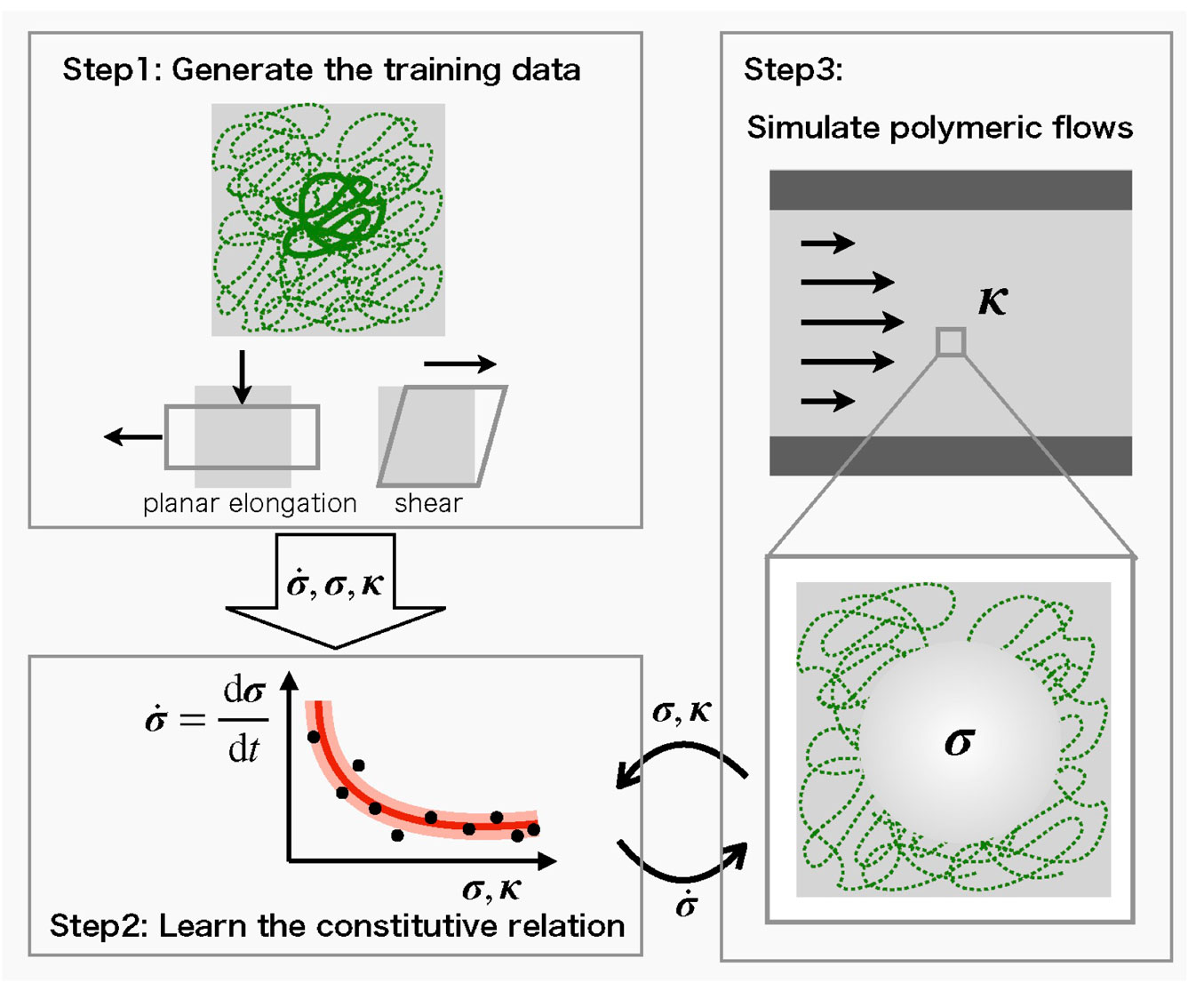Polymer Processing Prediction using Machine-Learned based Multi-Scale Simulations
Project Gist
Develop physics-informed Machine-Learning methods to simulate flowing soft matter, in particular entangled polymer melts.
Keywords
Soft Matter, Multi-Scale, Machine Learning, Polymer Melts
Background and Purpose
Soft Matter systems (e.g., colloidal dispersions and polymers) are incredibly important to our daily lives. However, predicting their material properties is incredibly difficult thanks to the multiple length- and time-scales in the system. Here, we focus on polymer melts, in which the microscopic chain dynamics strongly influence the macroscopic flow, and vice-versa. Multi-scale simulations provide one solution, but they are prohibitively expensive. Instead, we have recently proposed a Machine-Learning method that is capable of learning the constitutive relation of polymer melts with memory[1]. The purpose of this project was to extend this general approach to consider realistic systems, e.g., entangled polymers melts.
[1] N. Seryo, T. Sato, J.J. Molina, and T. Taniguchi, “Learning the constitutive relation of polymeric flows with memory”, Physical Review Research 2,033107 (2020)
Project Achievements
We extended and applied our ML method to learn the constitutive relation of the standard polymer entanglement model, i.e., the Doi-Takimoto model. The simulation results using this learned relation are in excellent agreement with full Multi-Scale Simulations, but require an order of magnitude fewer computing resources. This will allow us to simulate realistic polymer processing flows, in an effort to develop next-generation polymeric materials. Our research results have been published in three articles, reviewed in two invited articles (in Japanese), and presented in over 10 international conferences. In addition, it has also led to the adoption of a JSPS Transformative Research Area (A) (publicly offered research) grant for FY2023-FY2024 to continue this project. Finally, we have been able to extend our network across disciplinary boundaries, to work with other researchers interested in merging Physics and Machine-Learning.
Future Prospects
We will continue to develop and improve upon our ML framework, in order to provide a state-of-the-art simulation framework for complex soft-matter flows, in general, and entangled polymer melts in particular. This will allow us to simulate and optimize realistic polymer processing flows used in industry. In addition, we will also apply the same methodology to other soft matter systems, such as colloidal dispersions and cellular tissues.
Figure

Figures adapted from Miyamoto et al., Physics of Fluids, 35, 063113 (2023)

Principal Investigator

MOLINA LOPEZ John Jairo
Department of Chemical Engineering
John Molina studied Physics in Colombia, before receiving his PhD from the University of Paris 6. He focuses on developing computational methods to explain the complex dynamics of SoftMatter (e.g., colloidal dispersions, cellular tissues, polymer melts). To design next-generation Soft-Matter materials, he is merging Machine-Learning with computational physics.
Related URL: https://sm.cheme.kyoto-u.ac.jp/
